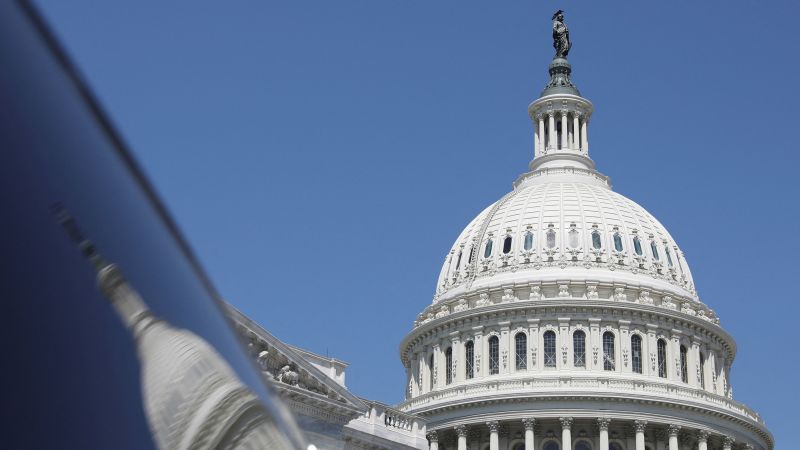The House recently passed a modified surveillance bill that would reauthorize the Foreign Intelligence Surveillance Act, after an earlier version failed to advance just two days prior. This legislation must also be approved by the Senate before an April 19 deadline. The passage of the bill was a victory for House Speaker Mike Johnson, following GOP leadership’s defeat on the floor earlier in the week. Johnson has been facing challenges to his leadership, including a resolution filed by GOP Rep. Marjorie Taylor Greene that threatened to force a vote to remove him from the speakership.
Despite their differences, Johnson and Greene were seen speaking on the House floor, discussing various issues. The final vote on the reauthorization of the FISA bill resulted in 273-147, with support from both Republicans and Democrats. The new version of the bill is a two-year reauthorization instead of five years, with the aim of appeasing conservative House members who originally opposed the legislation. Johnson organized a classified reading room for members to view classified information ahead of the vote, and he is scheduled to meet with former President Donald Trump in Florida.
Johnson, who was initially opposed to the reauthorization of section 702 of FISA, changed his perspective after receiving classified briefings. The White House expressed support for the reauthorization of the bill, emphasizing the importance of national security and intelligence gathering efforts. One recent instance where FISA-collected data was instrumental involved thwarting a shipment of chemicals used to produce fentanyl pills that were headed to the United States. The intelligence gathered through FISA was critical in disrupting the shipment, preventing the production of millions of illegal pills.
A controversial bipartisan amendment emerged during the FISA vote, requiring the FBI to obtain a search warrant before accessing collected foreign intelligence data related to US citizens. Both the Biden administration and Republican national security hawks lobbied against the amendment, highlighting concerns that it would undermine surveillance authorities granted in Section 702. Despite these efforts, the amendment failed by one vote, with 86 Republicans voting against it. Conservative hardliners blamed Speaker Johnson for the defeat of the amendment, further highlighting the challenges he faces in maintaining leadership.
In the midst of these leadership struggles, Johnson’s ability to navigate differing opinions within his party is being tested. Greene criticized him for the amendment’s failure and compared him to Democratic Speaker Nancy Pelosi. The evolving dynamics within the GOP leadership reflect broader tensions within the party regarding surveillance, national security, and individual liberties. As the bill moves forward to the Senate, the future of surveillance and intelligence gathering efforts remains a topic of debate and contention among lawmakers and political observers.


